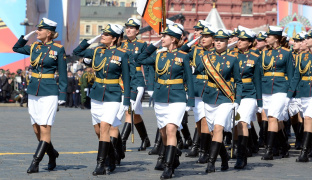Ukraine is willing to accept trade restrictions with the EU to defuse the political dispute with Poland but urges the EU to ban the import of russian grain. Taras Kachka, Ukraine's trade representative, stated this in a comment to the Financial Times, published on March 6.
"Perhaps, for the transitional period, such a managed approach to trade flows between Ukraine and the EU is what we all need. Regarding wheat, it is not Ukraine causing problems for Polish farmers but russia", - said Kachka, noting that Kyiv agrees to new restrictions on the import of Ukrainian agricultural products, but on the condition that the EU also bans the export of russian agricultural products, which still enter the bloc through belarus and the Baltic countries.
Kachka added that Kyiv supports the new measures proposed by Brussels, which include introducing limits on the import of eggs, poultry meat, and sugar from June. It also allows individual countries to close their markets to Ukrainian grain, except for further transit to other countries.
It is specified that Ukraine has also agreed to redirect corn exports to Italy and Spain through the Black Sea instead of neighboring countries to reduce tension.
"We voluntarily stopped exporting corn to all five neighboring EU countries. Despite this, we exported another new record - 15 million tons of corn in the calendar year 2023. So, we have great demand in other countries. Ukraine has filled gaps in EU production", - the trade representative also mentioned.
It is noted that the need to ban the import of agricultural products from russia and belarus was supported by Ukraine's trade representative and the Prime Minister of Poland, Donald Tusk. Lithuania's Prime Minister Ingrida Simonyte stated that this measure would be supported by her country as well.
"Tusk said that restrictions at the bloc level would be more effective, but achieving this will be difficult since several member states oppose it due to concerns that it will destabilize global markets and exacerbate the economic and social crisis in developing countries", - the statement said.




